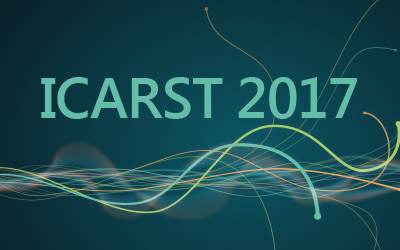Speaker
Mr
Vladimir Feldman
(Lomonosov Moscow State University, Department of Chemistry, Russian Federation)
Description
The development of new approaches to radiation stabilization and radiation processing in various fields should be essentially based on consideration of the efficiency and spatial selectivity of the radiation-induced events in complex molecular systems and polymers. In fact, as shown in a number of recent studies, the radiation chemistry of such systems may be controlled by rather subtle effects, e.g., molecular packing determined by relatively weak interactions, conformation, supramolecular structure, dynamics on interfaces, etc. It implies that, in addition to understanding of the radiation-chemical processes at the molecular level, one should consider the effect of system organization on the primary radiation-induced processes and kinetics of post-irradiation reactions.
This lecture will present an overview of modern concept of the radiation chemistry of organized systems and illustrate its basic aspects and implications with the results on different systems (from the simplest intermolecular complexes to nanocompsites) obtained in our laboratory during the past decade. Experimental characterization of the radiation-induced effects and structural changes was carried out using various methods, including EPR, UV/VIS, and FTIR spectroscopy, TEM and XRD analysis and complemented by theoretical simulations, when applicable.
The illustrative examples briefly covered in this lecture will include (i) radiation-chemical transformations of frozen intermolecular complexes; (ii) specific features of the radiation-driven processes in room-temperature ionic liquids (RTIL); (iii) mechanism of the radiation-induced degradation of crown-ether based systems. Particular attention will be paid to nanostructured systems. A new method of controlled single-stage radiation-chemical synthesis of metal-polymer nanocomposites from the interrpoyelectrolyte complex films developed in our laboratory will be presented. This method makes it possible to obtain the composite films containing metallic or bimetallic nanoparticles with various size distribution and spatial organization using X-rays or fast electron beams. The results obtained with X-ray irradiation of nanostructured systems demonstrated a prominent effect of “radiation-chemical contrast” with possible applications for selective modification of nanocomposites and targeted sensitization (e.g., in radiotherapy).
Finally, the implications of the radiation chemistry of organized systems for various existing and emerging technologies (ranging from nuclear waste treatment to fabrication of new nanomaterials and nanolithography) will be outlined.
| Country/Organization invited to participate | Russian Federation |
|---|
Primary author
Mr
Vladimir Feldman
(Lomonosov Moscow State University, Department of Chemistry, Russian Federation)

